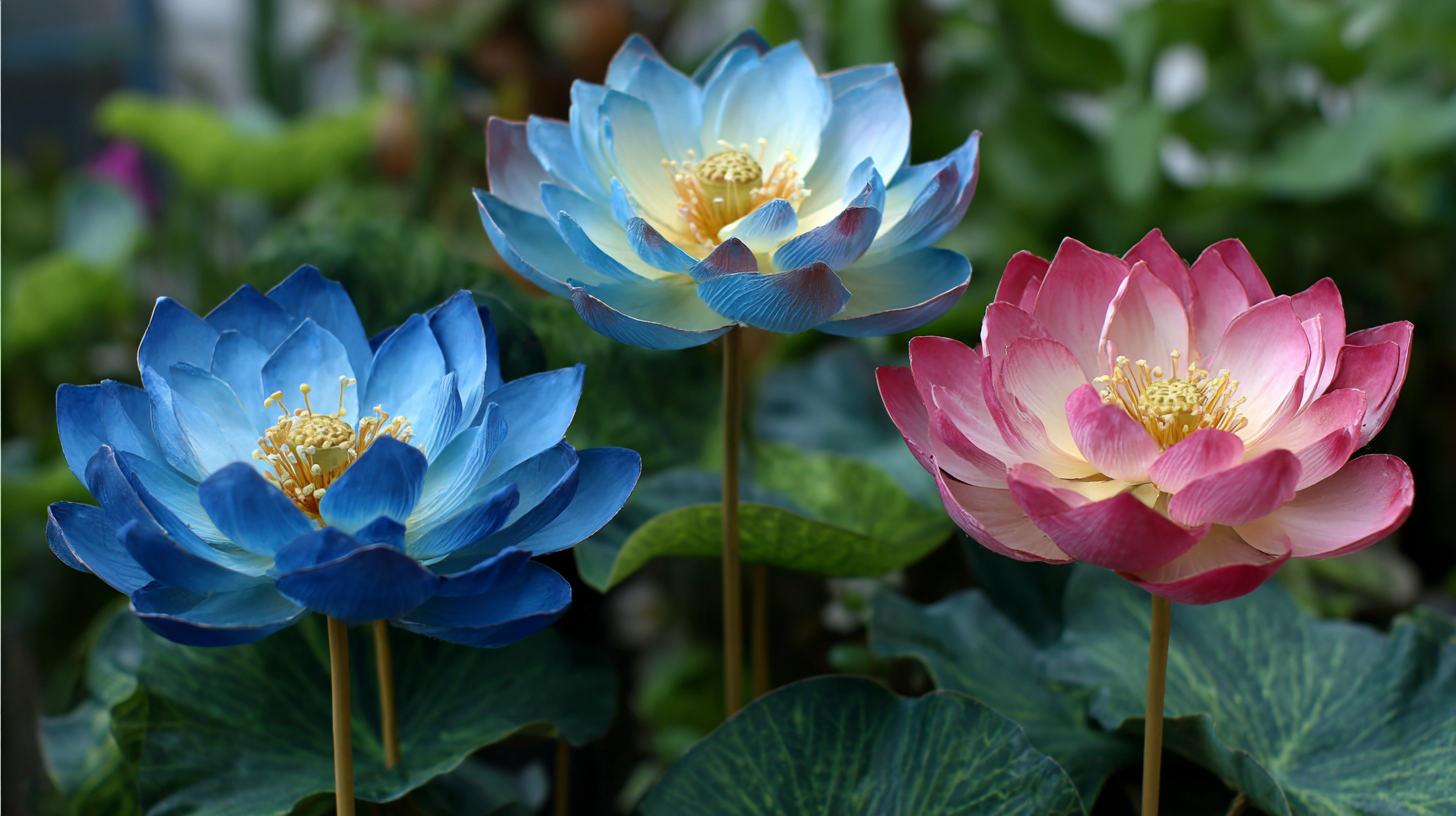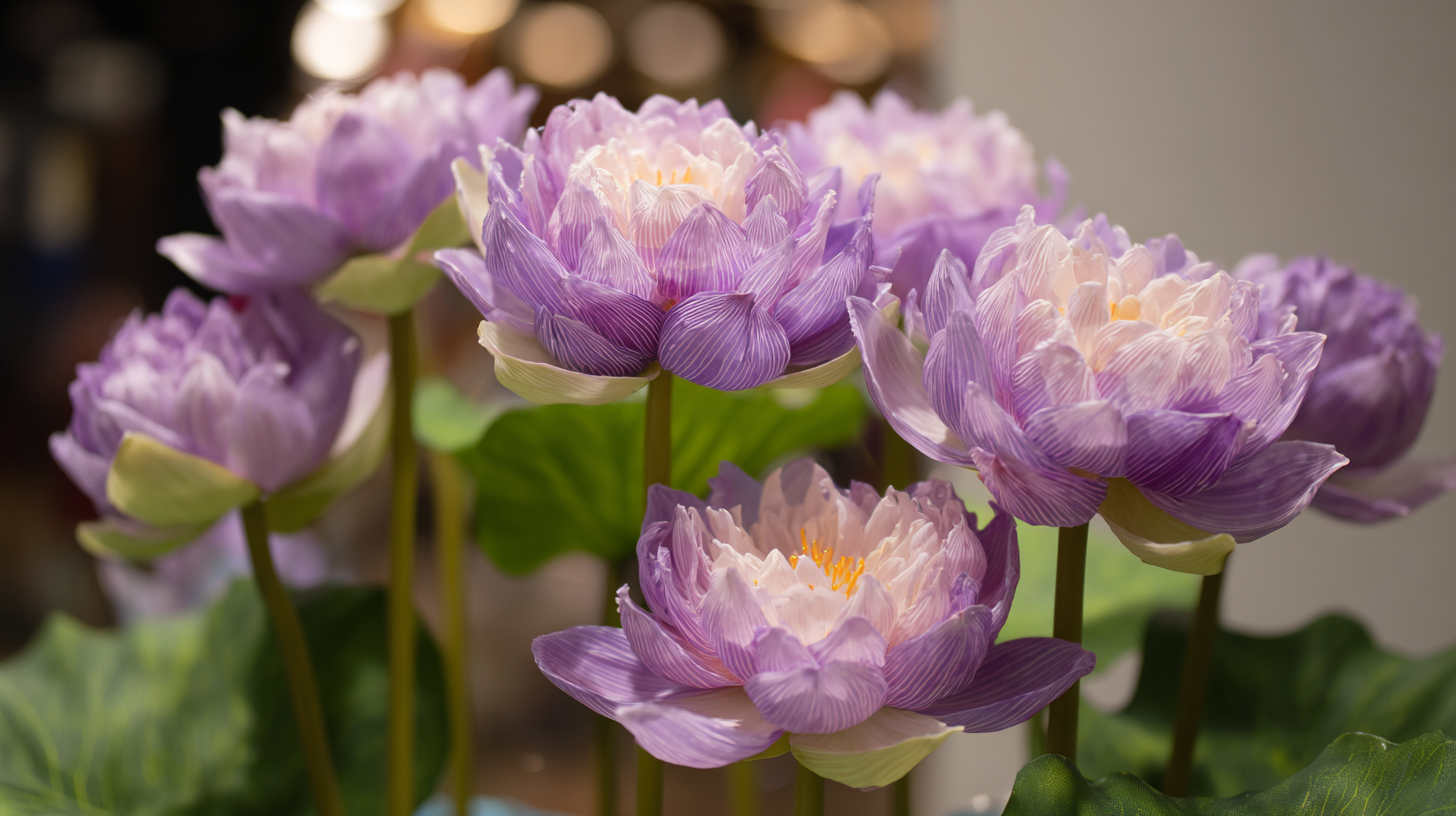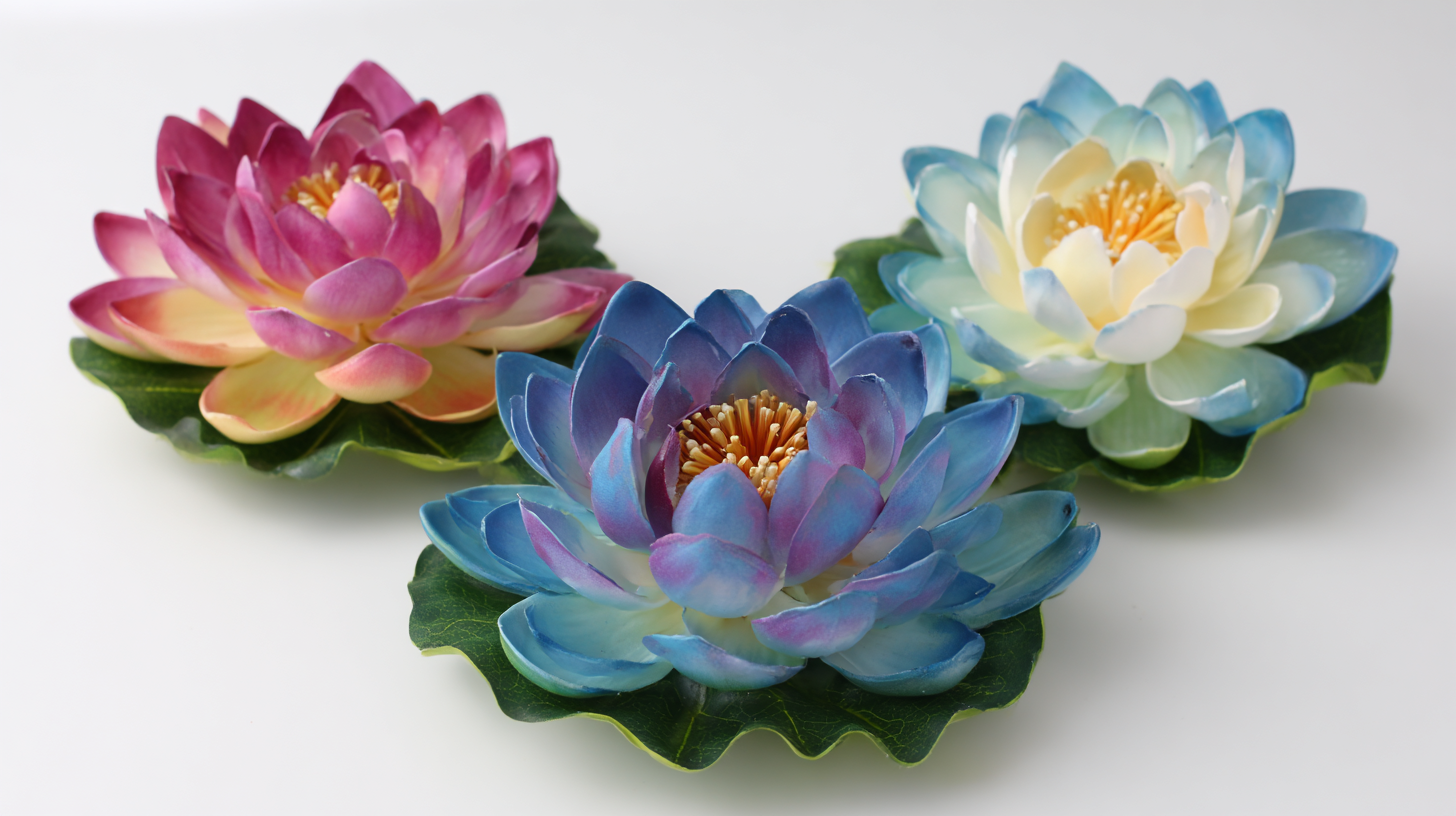
In today's fast-paced global market, understanding the intricacies of import and export certifications is crucial for both sellers and buyers of decorative items, particularly Artificial Lotus Flowers for Decoration. As we approach 2025, the demand for exquisite, lifelike artificial flora continues to rise, making these products not just a trend but a staple in home and event decor. This blog aims to guide you through the essential certifications required to ensure that your artificial lotus flowers meet quality and safety standards while navigating the complexities of international trade. By selecting the best artificial lotus flowers, you can enhance your decor while also staying compliant with market regulations, paving the way for successful transactions in the ever-evolving landscape of decorative imports and exports.

Import and export certifications play a crucial role in the flower industry, particularly as the global cut flower market is projected to grow significantly. According to industry reports, the market is estimated to reach a value of USD 41.54 billion by 2025 and increase to USD 67.02 billion by 2035, reflecting a compound annual growth rate (CAGR) of 4.9%. This rapid growth underscores the necessity for proper certifications to ensure compliance with international standards, especially when venturing into major markets like China, where popular imported flowers include Gypsophila, Roses, Summer Flowers, and Preserved Roses.
As countries like Russia halt imports from certain regions due to pest concerns, the importance of certifications becomes even clearer. Such measures protect domestic markets but highlight the need for exporters to maintain rigorous quality standards and obtain necessary certifications. Furthermore, the rise of Fairtrade flowers indicates a growing consumer preference for ethically sourced products. Ensuring that products meet certification requirements not only aids in market entry but also appeals to a consumer base increasingly concerned with ethical sourcing and sustainability.

When selecting artificial lotus flowers for your decor, there are several key factors to consider that can significantly impact your choice. First and foremost, pay attention to the materials used in the construction of the flowers. High-quality artificial lotus flowers are typically made from silk or high-grade plastic that mimics the soft texture and vibrant colors of real blossoms. This not only enhances the aesthetic appeal but also ensures durability over time, allowing them to maintain their beauty through various decorating themes and settings.
Another important aspect to evaluate is the realism of the flowers. Look for features such as intricate detailing and naturalistic color gradients that replicate the soft, subtle hues of genuine lotus flowers. The arrangement and pose of the leaves should also mirror their natural counterparts, providing a more authentic look. Additionally, consider the size and scale of the flowers in relation to your space. A large, statement piece can create a focal point, whereas smaller arrangements can add subtle elegance. By focusing on these crucial elements, you can select the best artificial lotus flowers that will enhance your decor beautifully.
When selecting artificial lotus flowers for your decor, evaluating quality and authenticity is crucial. Not all artificial flowers are created equal; hence, it’s important to inspect the materials used in their production. High-quality artificial flowers are typically made from silk, polyester, or other durable materials that can withstand the test of time. Look for flowers that have realistic textures and colors to enhance the authenticity of your decor.
Tip: Always check the product reviews and ratings to gauge the satisfaction of previous customers. This can provide insights into the authenticity and craftsmanship of the artificial flowers.
Additionally, consider the manufacturing process behind the flowers. Manufacturers employing ethical practices often yield higher quality products. Look for certifications that indicate the use of eco-friendly materials or ethical labor practices.
Tip: When possible, choose flowers that are hand-crafted, as they tend to exhibit fine detailing and individuality, enhancing the overall aesthetic of your decor.

Navigating international trade can be daunting, especially when it comes to importing and exporting products like artificial lotus flowers. Compliance with regulations is essential to ensure that shipments pass through customs smoothly. According to the International Trade Centre, the global market for decorative artificial flowers is projected to reach approximately $2 billion by 2025, highlighting the importance of understanding the intricate rules surrounding international trade in this sector. Each country has its own set of regulations regarding the importation of goods, and failure to comply can result in delays, fines, or even the confiscation of your products.
To ensure compliance, importers must stay informed about necessary certifications, such as safety standards and import permits. For instance, the U.S. Customs and Border Protection (CBP) requires all imported goods to meet specific safety and labeling standards. Additionally, industry reports indicate that 30% of importers experience compliance issues, which can lead to significant financial losses. Engaging with customs brokers or trade compliance experts can provide valuable insights into regulatory requirements, ensuring that your artificial lotus flowers not only enhance your decor but also navigate the complexities of global trade successfully.
| Attribute | Details |
|---|---|
| Material | Silk, Plastic, and Other Synthetic Materials |
| Color Options | Variety of Colors Including Pink, White, Yellow, and Blue |
| Size Options | Small (3 inches) to Large (12 inches) |
| Export Certifications | CE, RoHS, and Other Required Certifications |
| Compliance Regulations | Adherence to International Shipping Standards |
| Preferred Usage | Home Decor, Wedding Decorations, Events |
| Shipping Options | Air Freight, Sea Freight, and Express Shipping |
| Pricing Range | $1 - $20 per Piece Depending on Size and Material |
When it comes to sourcing artificial lotus flowers for your decor, establishing reliable supplier relationships is critical. Quality and consistency are essential in creating an inviting space, and the right suppliers can make all the difference. One of the first tips in nurturing these connections is to prioritize clear communication. Ensure that your expectations regarding product quality, delivery timelines, and pricing are laid out from the beginning. This transparency fosters trust and helps to avoid misunderstandings later on.
Another important aspect is conducting thorough research. Look for suppliers with a proven track record in the industry and seek out reviews or testimonials from previous clients. Attend trade shows or online exhibitions to meet potential suppliers face-to-face. These interactions can help you gauge their reliability and commitment to customer satisfaction. Additionally, consider starting with small orders to assess the quality of their products and the efficiency of their service before making more significant commitments. Building a solid foundation with your suppliers will enhance your overall decor experience.
